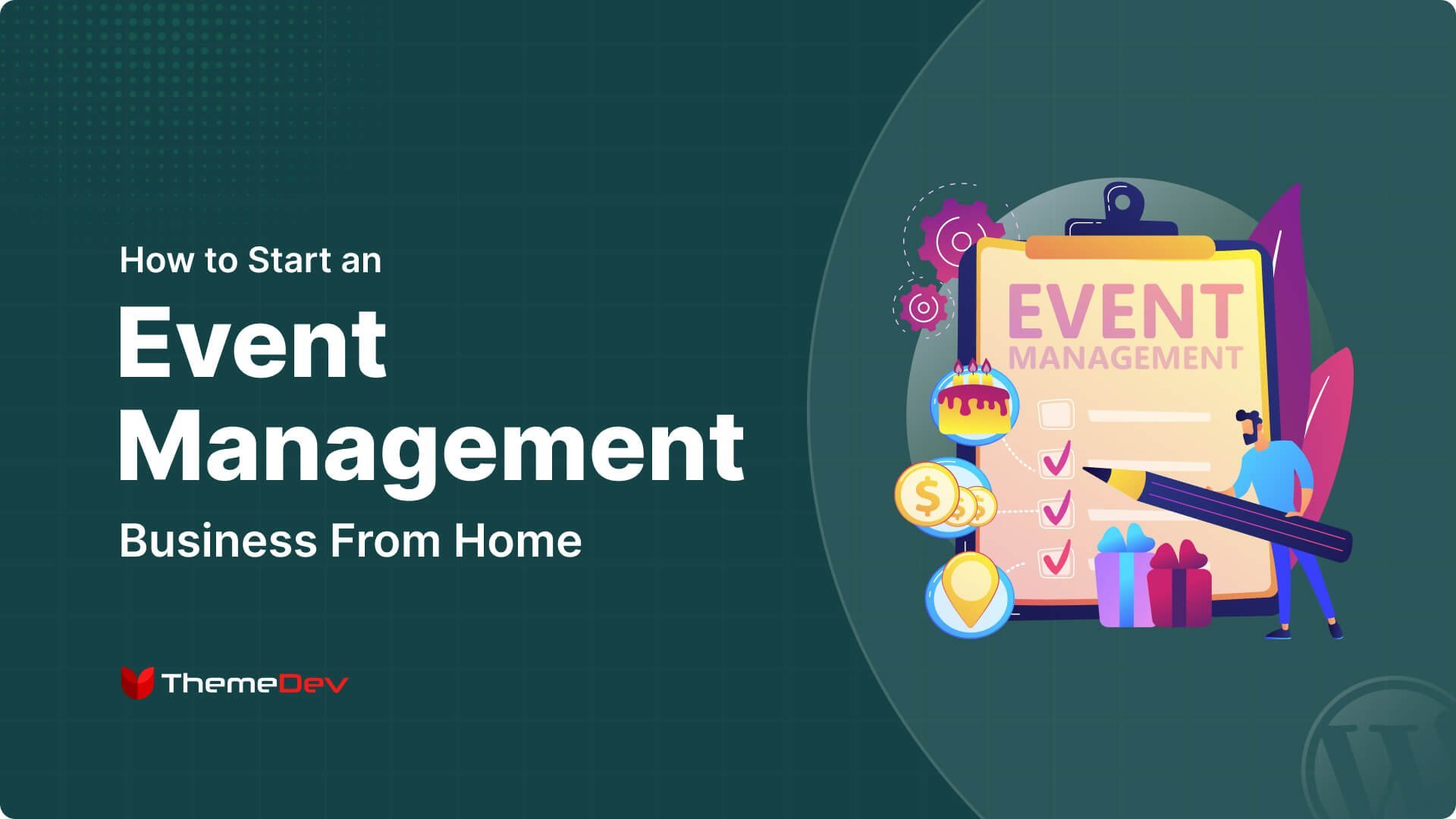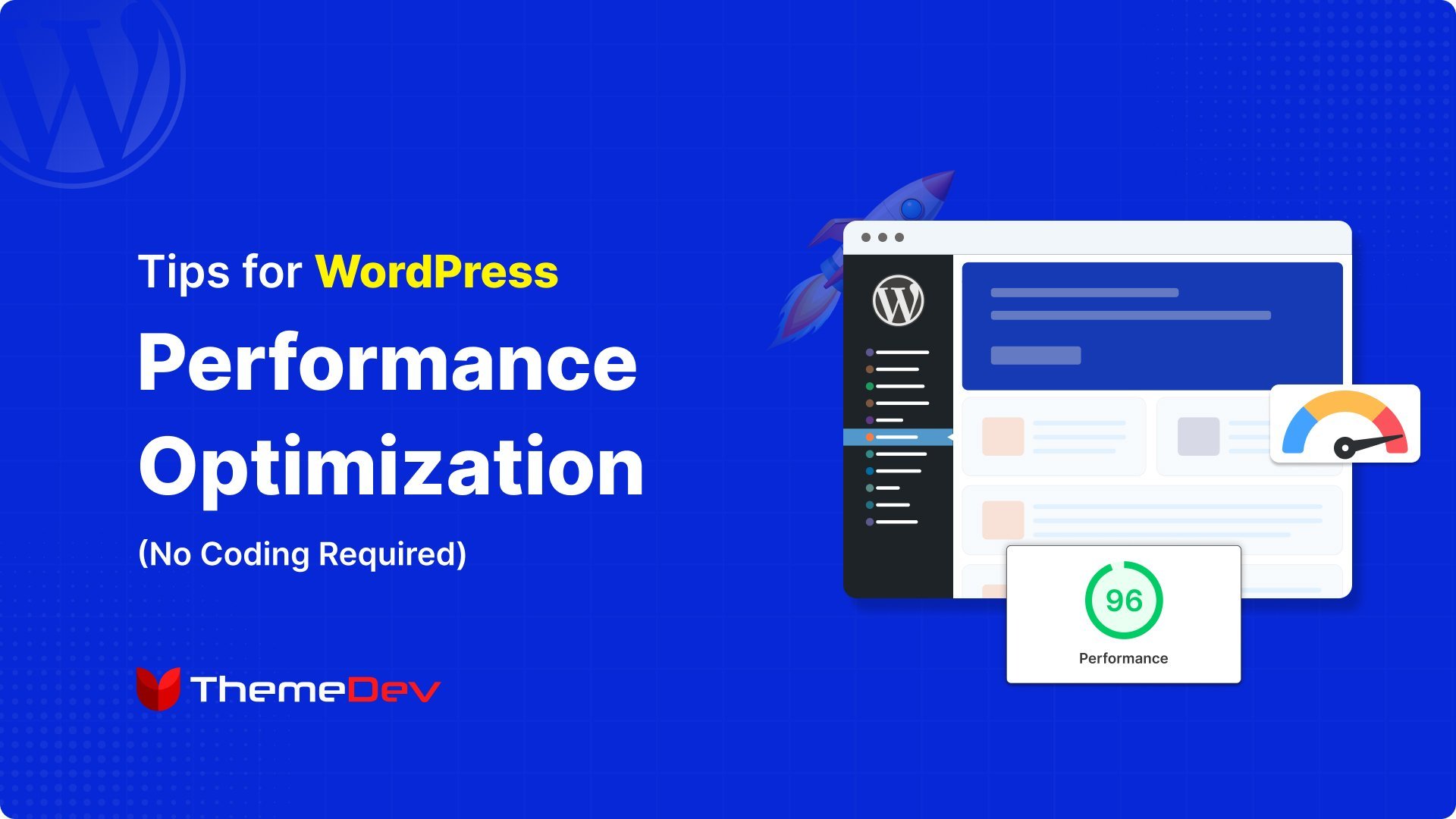Have you ever thought about turning your talent for planning parties into a real business, all from the comfort of your living room? An event management business can be a great choice for your career.
Starting an event management company from home is a great way to turn your planning skills into a profitable business. You don’t need a fancy office or a big team to begin. You need to have passion, organization, and a strong vision.
More people are hosting events and looking for creative planners, so the demand for event services is growing. There are many opportunities to explore, from birthdays and weddings to corporate meetings.
In this blog, we’ll guide you through the key steps to launch your home-based event management business.
Let’s get started!
Why Should You Start an Event Planning Business from Home?
An event planning business from home allows you to work on your terms. It’s a great way to turn your love for organizing into a career.
You can start small, using just your laptop and phone. There’s no need to rent office space or hire a team immediately.
This type of business fits well with today’s flexible lifestyle. Whether you’re planning weddings, birthdays, or corporate events, people are always looking for someone to take the stress out of their special day. Best of all, you get to be creative, meet new people, and build something that’s truly your own.
Here are a few reasons to start an event management business from home:
- You can keep your expenses low.
- Your schedule is in your control.
- There’s no commute or office distractions.
- You can focus on building a brand at your own pace.
- It’s easy to expand as your business grows.
- Run with low startup and overhead costs.
- Enjoy flexible working hours.
- It is easy to scale as your business grows.
- Enjoy a great work-life balance.
- You will have an opportunity to turn your passion into profit.
Steps to Start Your Event Planning Business from Home
Starting an event planning business from home requires some clear steps that you need to follow properly. It requires clear direction and smart planning.
To get started on the right path, you’ll need to focus on the essentials, like defining your services, selecting a company name and logo, and creating a strategy to attract clients.
Let’s explore a step-by-step guide to help you confidently launch and grow your event management business from home.
1. Get Practical Experience in Different Events

You can gain valuable skills when you get practical experience in different types of events. This hands-on learning helps you understand how various events are planned and what makes each one unique. It also teaches you how to handle pressure, manage timelines, and work with vendors.
You can start by helping friends, family, or local groups with their events. You can volunteer at weddings, birthdays, fundraisers, or corporate gatherings. These experiences give you a chance to practice your skills and build confidence.
The more events you work on, the better you’ll get at solving problems and staying organized. This experience will make you more prepared to run your own event management business.
2. Understand Your Audience and Competitors
To start an event planning business, you need to understand the market. This will help you identify the types of events that are in demand, such as weddings, birthdays, corporate functions, or community gatherings.
Researching your competitors is just as important. Look at what services they offer, how much they charge, and how they promote their business. Also, pay attention to their customer reviews to see what clients like or dislike.
This research helps you plan your event business management services more effectively. You can spot gaps in the market and offer something different. It also gives you a clear idea of how to price your services and reach your target audience.
3. Pick a Business Structure

Before starting an event management business, you need to choose the right business setup. This setup affects how you manage your finances, pay taxes, and handle legal responsibilities. You should pick a structure that fits your goals, budget, and long-term vision.
Each business type has pros and cons, so it’s important to understand your options before making a decision.
Here are a few common business types to consider:
- Sole Proprietorship: This is easy to set up and manage, but you are personally responsible for all debts.
- Partnership: Ideal if you’re starting with a partner, but you both share the risks and profits.
- Limited Liability Company (LLC): An LLC offers legal protection and is flexible in how it’s taxed.
- Corporation: Best for larger businesses with more complex needs, but it requires more paperwork and costs.
4. Set a Business Name and Logo
Setting a business name and logo is one of the most important steps. It’s how people will remember your brand. Choose a name that’s easy to say, easy to spell, and fits your event planning style.
For example, if you plan elegant weddings, you could pick a name like “Graceful Moments.” Then, create a simple logo that matches that style maybe soft colors and a clean font.
Your name and logo should look good on your website, business cards, and social media. It helps people recognize you and trust your services. Keep it simple and clear.
5. Create a Proper Business Plan
A proper business plan helps you stay focused and organized for starting an event management company. It gives you a clear picture of what you want to achieve and how you’ll get there. A good plan also makes it easier to explain your goals if you ever need support or funding.
Your business plan should cover all the important areas. It doesn’t have to be complicated. You need to just make a clear and useful business plan.
Here’s what to include:
- Business name and mission: What your business is called and what it stands for.
- Services you’ll offer: The types of events you plan and what’s included.
- Target market: Who your ideal clients are.
- Marketing strategy: How you’ll reach and attract clients.
- Pricing and budget: How much you’ll charge and what your costs will be.
- Business goals: What you want to achieve in the short and long term.
This plan will keep you on track as your business grows. You can also update it anytime as things change.
6. Register Your Business

After starting an event management company, registering your business makes it legal and official. It helps you operate professionally and protects your business name. Clients also feel more confident when they know they’re working with a registered business.
The process usually starts with choosing a business structure—like a sole proprietorship, LLC, or partnership. Then, you register your business name and apply for any required licenses or permits. In many places, you’ll also need a tax ID (EIN) to open a business bank account and file taxes.
Each country or state has its own rules, so checking your local government website is a good idea. Here are a few helpful links to guide you:
United States: https://www.sba.gov/
United Kingdom: https://www.gov.uk/browse/business
Canada: https://www.canada.ca/en/services/business.html
Australia: https://business.gov.au/
7. Investment and Funding
When starting your event management business from home, you don’t need a huge investment, but you do need to plan wisely. Think about what you’ll need, like a laptop, internet, website, branding, and some basic marketing. These are small costs, but they add up if you’re not careful.
If you need extra money to start your event planning business, you have a few easy options. You can use your personal savings or ask family and friends to support your idea. These are simple ways to get started without much paperwork.
You can also try small business loans, grants, or crowdfunding. Banks and online lenders offer startup loans. Some programs give grants to new businesses. You can even promote your idea online and ask people to back it up.
Plan your spending and grow slowly. A smart budget helps you stay stress-free and focused on building your dream business.
8. Set Up Your Website

Creating a website is one of the best ways to promote your event management business. It helps people find you online, learn about your services, and get in touch with you. A simple and clean site makes you look more professional and trustworthy.
You can use an event booking plugin like the Evental plugin on your site to automate the booking process. It’s made for event planners and helps you manage events, bookings, and schedules – all in one place. You don’t need to know coding. It’s beginner-friendly and comes with ready-to-use layouts.
The Evental plugin helps you manage event booking quickly so you can focus more on planning and less on tech.
9. Social Media Accounts
If you haven’t already created social media accounts, you should definitely set up social media accounts for event business management. It’s one of the easiest and most effective ways to get noticed. Platforms like Instagram, Facebook, and even Pinterest are great for sharing your work and attracting clients who love your style.
When you create your accounts, make sure they’re business profiles. Use your business name, your logo, and a short bio that tells people what you do. Keep everything matching across platforms so your brand feels clear and professional.
Here’s what you can start doing right away:
- Post photos of past events or styled setups.
- Share tips, behind-the-scenes clips, or planning ideas.
- Use hashtags so more people can find you.
- Reply to comments and messages quickly.
- Add your website link in your profile bio.
10. Set Up a Company Bank Account
You should open a separate bank account for your event management business. It’ll make your life so much easier, especially when it comes to tracking income and expenses. Plus, it looks way more professional when clients are sending payments to a business account instead of your personal one.
To get started, you’ll just need a few things, like your business registration papers, a tax ID (or EIN), and some personal ID. Most banks offer small business accounts, so just choose one that feels right for you. Online banks are also a great option if you prefer doing everything from your laptop.
Keeping your business money separate from your personal money will save you headaches later. It also helps you stay organized and shows people you’re serious about what you’re doing.
11. Plan a Pricing Strategy
When you plan your prices, start by thinking about your time and effort. Your price should match the value you give.
Write down all your costs. This includes supplies, software, travel, tools, and your time. Decide how you want to charge. You can choose hourly rates, flat fees, or different packages.
Check what other event planners are charging in your area. This helps you set a fair price. You can always update your prices as your skills and experience grow.
12. Promote Your Event Planning Services
Focusing on promoting your event planning services is easier than it sounds. You can start by telling people you know, like friends, family, and local contacts. They can spread the word and help you get your first clients.
Also, use social media to show off your work. Post pictures from events you’ve planned, share tips, and keep people updated.
Here’s a simple list to help you get started:
- Tell your friends and family about your business.
- Join local Facebook groups or online communities.
- Share photos of your events on Instagram and Facebook.
- Set up a Google Business Profile.
- Offer discounts for new clients.
The key is to stay active and consistent. The more you share, the more people will notice you.
13. Protect Your Business with Insurance

If you’re starting your own event management business, you need to get insurance. It helps protect you when something unexpected happens. For example, if someone gets hurt at your event or something breaks, insurance can cover the cost.
There are a few types of insurance you might need. General liability insurance is a common one. It covers accidents and damage. You can also look into professional liability insurance. That one helps if a client says your service caused a problem. And if you have any expensive equipment, you can get insurance to protect that, too.
Having insurance makes your business look more professional. It also gives you peace of mind. You won’t have to worry as much if something goes wrong. It’s a simple step that can save you a lot of stress later.
14. Set Up Your Office Space
You have to set up your office space. It is an important part of starting your event management business. Whether you work from home or rent an office, you need a place where you can focus and be productive. Make sure you have the basics, like a desk, a comfortable chair, a computer, and fast internet.
If you’re working from home, try to create a dedicated space for your work. This helps you separate business from personal life. Even a small corner can work if it’s quiet and organized.
If you decide to rent an office, choose a location that is easy for clients to reach. The office should be comfortable and have enough space for your work. A well-organized office will help you stay efficient and look professional when meeting clients.
15. Choose and Buy Your Business Equipment

When you’re starting your event management business, getting the right equipment is important. You don’t need to buy everything at once. Begin with the basics like a computer, a phone, and a strong internet connection. These tools will help you stay organized and communicate with your clients easily.
Think about the kind of events you want to plan. If you’re focusing on weddings, you may need things like table décor, backdrops, or lighting. If you’re doing corporate events, equipment like a projector, microphone, or speaker system might be more useful.
It’s a good idea to make a list of the things you’ll need most often. That way, you won’t overspend on items you won’t use right away. Start with a few essential tools, and add more as your business grows and you take on different types of events.
Here’s a list to help you get started:
- A reliable computer and phone
- A comfortable desk and chair
- Office supplies like a printer and notepads
- Event tools like décor, lighting, or sound systems
- Planning apps or software to stay organized
16. Hire Employees
When your event management business starts to grow, you might need extra help. Hiring employees can make your work easier and help you take on more clients. You don’t have to do everything alone, especially as your business gets busier.
You can start by deciding what kind of help you need. Maybe you need an assistant to handle calls and emails. Or maybe you need someone to help with setting up and managing events. Think about what tasks take up most of your time.
When you’re ready to hire, write a clear job post. Share it online or in local groups where people are looking for work. During interviews, look for people who are friendly, organized, and love working with others.
Hiring the right people can make your business stronger. With a good team, you can handle more events, give better service, and grow faster without burning out.
17. Get Customers Review

Getting customer reviews can improve your event planning business. Reviews help build trust with new clients. When people see happy feedback from others, they’re more likely to book your services. After every event, kindly ask your clients to leave a review about their experience.
To get text and video reviews from your clients, you can use the Next Video Reviews plugin. This plugin lets your clients leave both text and video testimonials straight on your website. Video reviews feel more real and personal, which can grab attention and build more trust. It’s also a great way to showcase your happy clients and the events you planned for them.
Adding video reviews to your site not only boosts your credibility but also improves how your business looks online. Try it out and ask your satisfied clients to share a short video. It’s a simple step that can bring you more business!
18. Learn about Your Strengths and Limitations
You learn more about yourself when you take the time to discover your strong points and limitations. This helps you focus on tasks you’re good at and find ways to improve where needed. For example, you might be great at organizing timelines but find it harder to negotiate with vendors.
Knowing this allows you to plan better. You can handle the parts you’re confident in and look for tools, training, or even help with the areas that are more challenging. This saves time and helps you avoid mistakes.
Why You Need an Event Management Business Plugin
You need an event management business plugin because it helps you run your business smoothly. It can handle bookings, manage event schedules, send automatic emails, and even collect payments. With everything in one place, you save time and stay organized without juggling multiple tools.
Using a plugin also makes things easier for your clients. They can visit your website, check your availability, book your services, and get updates without needing to call or email. It gives your business a professional touch and builds trust.
Here are some great event management plugins you can use: Evental, Amelia, and WP Event Manager. These plugins can help you automate tasks so you can focus more on planning amazing events.
One powerful plugin is the Evental plugin. It’s packed with features that make event management smooth. You can manage events, sponsors, speakers, and attendance all in one dashboard. It supports selling tickets online with integrated payment options like Stripe, WooCommerce, and even offline payments.
Here’s why Evental is special:
- Event Management: Easily create and manage unlimited events, including single and recurring ones.
- Flexible Booking Form: Customize attendee forms with personal info, ticket types, and special fields.
- CRM and Email Integration: Evental connects with NextCRM for sending automated confirmation and promotional emails.
- Calendar View: Show events in daily, weekly, or monthly calendar views.
- PDF Billing and Invoices: Let customers download invoices directly after booking.
- Multi-Layout and Page Builder Support: Use Elementor, Divi, or Gutenberg for your ideal layout.
- SEO-Friendly: Optimized for better visibility on Google and other search engines.
- Shortcodes: Use helpful shortcodes to display events, speakers, and search filters anywhere on your site.
Start an Event Management Business from Home Now
Starting an event management business from home might feel like a big step, but it’s totally possible. Now that you know how to open an event planning business, you should understand that you don’t need a fancy office or a huge team to get started. What matters most is your passion for organizing events, your ability to plan, and your willingness to learn as you go.
Take it one step at a time. Use the right tools, like Evental to make your job easier. Focus on building strong relationships with clients and always deliver your best work.
With the right mindset and a clear plan, you can grow a successful event management business right from your home.
You May Also Read



















